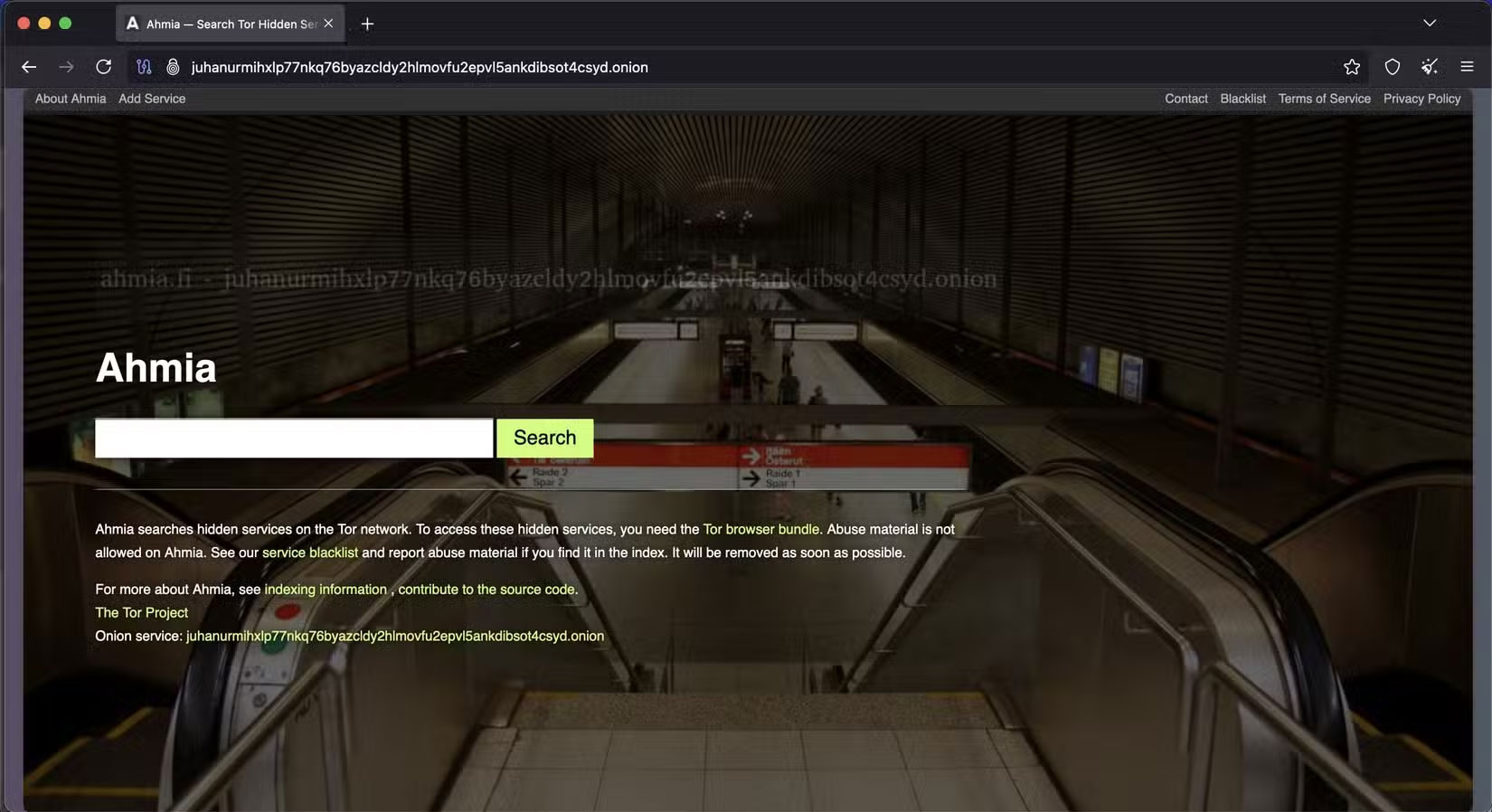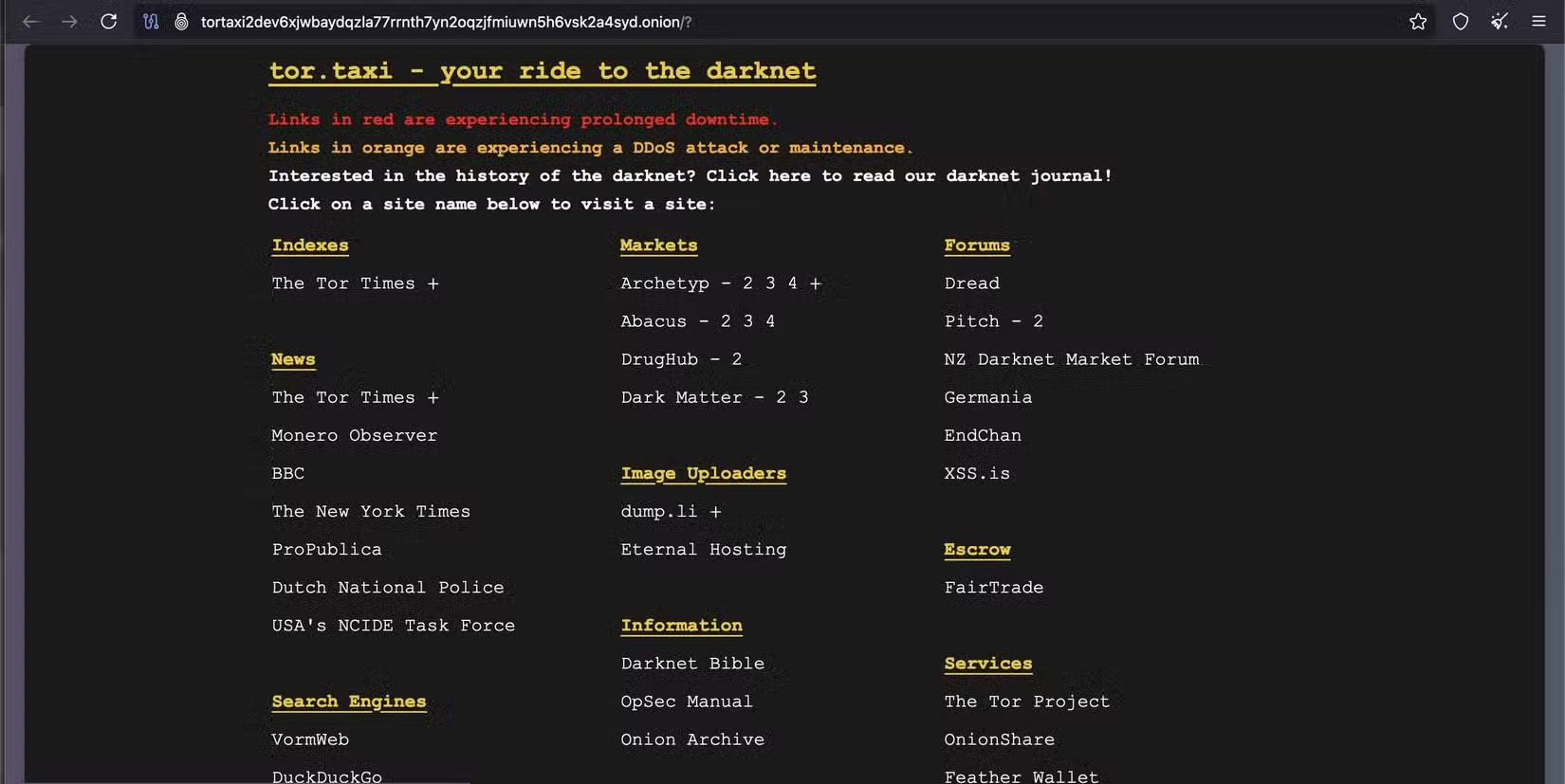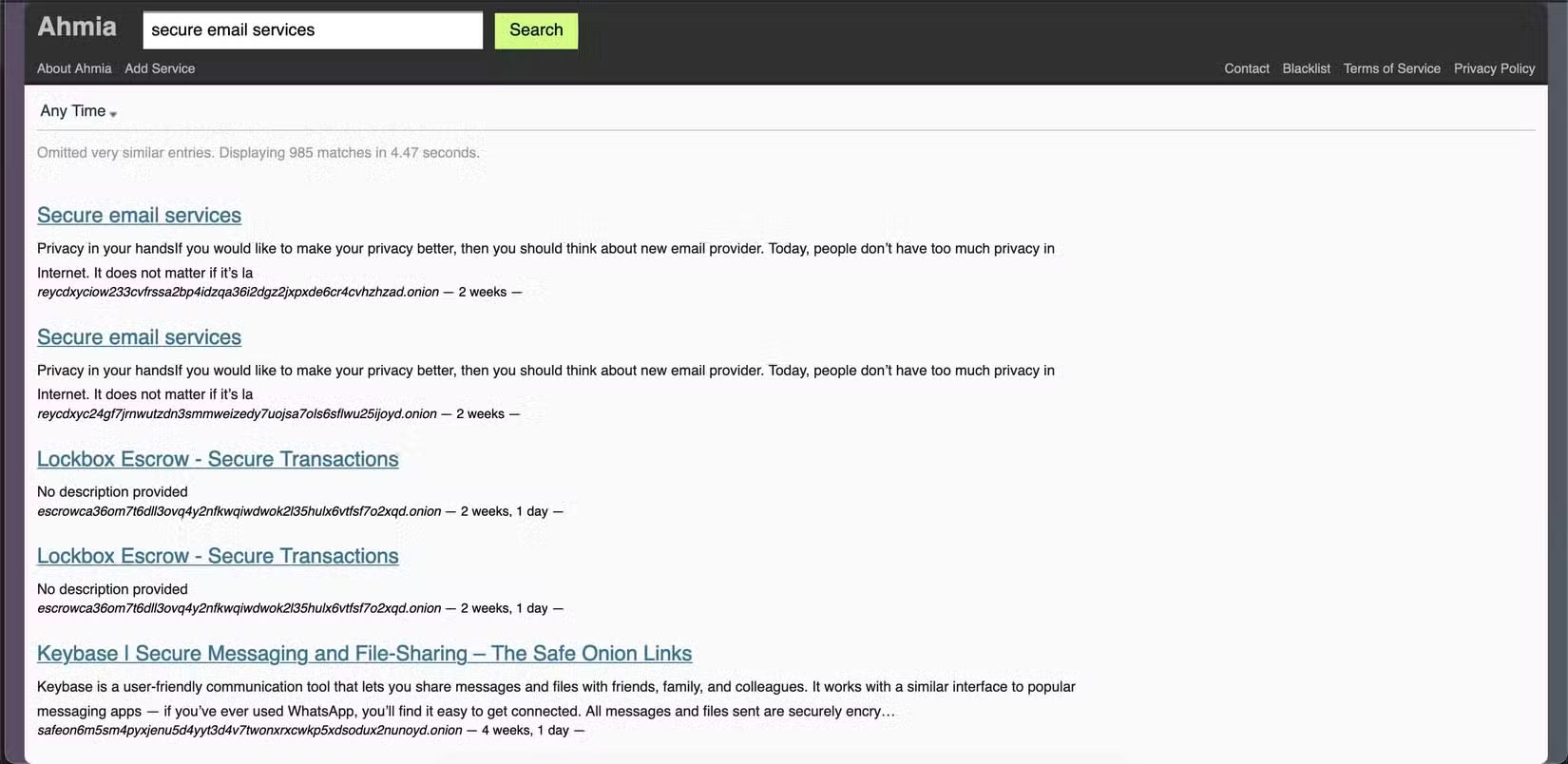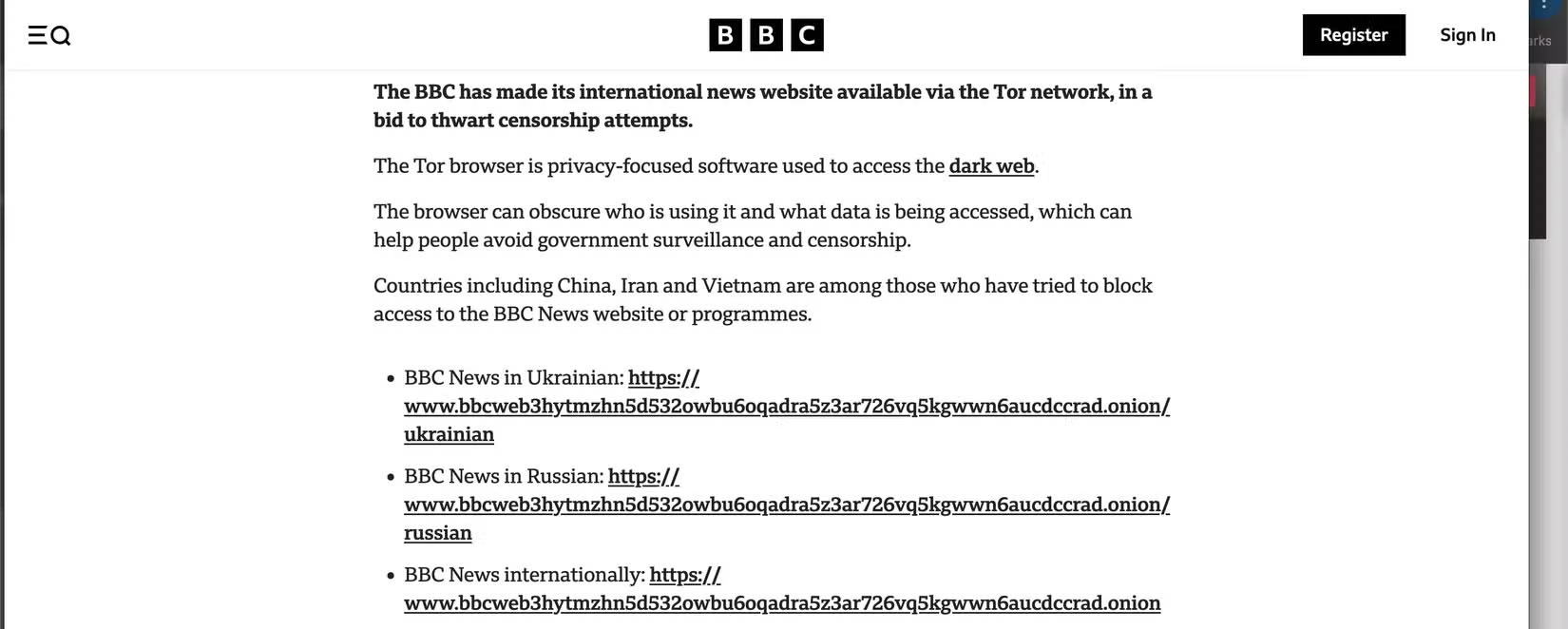How to Search the Dark Web
For a long time, many people thought the dark web was an impenetrable secretive block of websites frequented only by hackers and criminals. You probably didn't know that there were ways you could actually search the dark web for specific websites and types of content – but that's now changed.
How to search the dark web

You can't just open Google and type in "dark web sites" — at least not if you actually want to find them. The dark web runs on a different network, and its sites use a special domain suffix: .onion. These sites aren't indexed by standard search engines, which is why you need specialized tools to find them.
You need two things to search the dark web: A browser and the right search engines. Regular browsers like Google Chrome or Microsoft Edge won't work here. Instead, you'll need a browser that allows you to access onion sites, the most popular of which is the Tor Browser .
Once you're in Tor, you'll need a search engine designed for .onion content. Two of the most widely used are Ahmia and Torch, each offering varying levels of access and security.
Ahmia is a good place to start. It filters illegal content, and works both inside and outside of Tor. You can access it from a regular browser at ahmia.fi, but clicking on .onion links still requires Tor. Torch doesn't filter as much. It returns a wider range of results, including content that Ahmia intentionally avoids.
Distinguishing Legitimate and Scam Onion Sites

The dark web lacks many of the trust signals you'd typically see. There are no locks, no verified checkmarks, and no guarantee that the site you're visiting is who it claims to be. Scams and impersonations are common, especially on marketplaces and forums.
So how do you know which links are valid?
First, check where the link is coming from. On Ahmia, each result includes a brief description and sometimes a timestamp indicating when the site was last seen online. If a site has been inactive for a long time, there's a good chance it's dead, outdated, or has been replaced by some shady site.

Also, check to see if the .onion address is mentioned somewhere reputable. Several reputable organizations—like Facebook, the BBC, and ProPublica—list their official .onion links on their public websites or Wikipedia pages. It's one of the most reliable ways to confirm a site's identity. If the .onion URL you find through a search matches the URL listed by the organization itself, you're good to go.

If you're dealing with smaller or unofficial sites, consider cross-checking the URL on a known .onion directory like Real World Onion Sites Github (available on the clear web) or searching privacy forums. Reddit communities like r/onions or r/deepweb sometimes share verified links and warnings about scams, but again, be cautious. The so-called Hidden Wiki used to be a popular starting point for dark web newcomers, but is no longer a reliable source.
Essentials for Safe Dark Web Browsing

You don't need to be an expert to browse the dark web safely, but you do need to stay vigilant.
Always use the Tor Browser and make sure it's up to date. Don't open .onion links in your regular browser - they won't load and could accidentally reveal the information you're trying to access. You should also avoid copying links between browsers or apps, as they could be logged, tracked, or leaked unintentionally.
Stay anonymous. Don't log in with your personal email or username. If a site requires an account, use a one-time identity and password that you don't use anywhere else.
Disable scripts in Tor settings. Many .onion sites work fine without them, and enabling them increases your risk of being tracked or infected with malware.
Avoid downloading unless you completely trust the source. Even seemingly harmless files can pose risks.
Some people pair Tor with a VPN for added privacy, especially in restricted areas. If you do, choose a trustworthy VPN provider that doesn't keep logs, and understand that it doesn't always improve anonymity.
And finally, be clear about the legal boundaries. In most countries, accessing the dark web is not illegal – but what you do there may be. Accessing banned content, purchasing illegal goods, or even just visiting the wrong kind of marketplace can get you into trouble depending on local laws. Know what's legal where you live!
You should read it
- How to Use the Dark Web Without Doing Anything Illegal
- The Dark Web is not illegal, but be wary of these 7 things!
- How does the dark web affect security?
- What is the dark mode (dark mode)? Benefits and harms that dark background mode brings?
- The FBI expanded its search, adding a 'Dark web' shot down
- Dark Reader - A free utility that turns any website into dark mode, inviting the experience
 7 Best Firefox-Based Web Browsers
7 Best Firefox-Based Web Browsers 4 Ways to Save Anyone's Profile Picture on WhatsApp
4 Ways to Save Anyone's Profile Picture on WhatsApp Why should you ditch Chrome for Samsung Internet on Android?
Why should you ditch Chrome for Samsung Internet on Android? How to delete previous activity on Instagram
How to delete previous activity on Instagram 6 Tips to Better Manage Spotify Downloads
6 Tips to Better Manage Spotify Downloads How to adjust the speed of Instagram Story videos
How to adjust the speed of Instagram Story videos